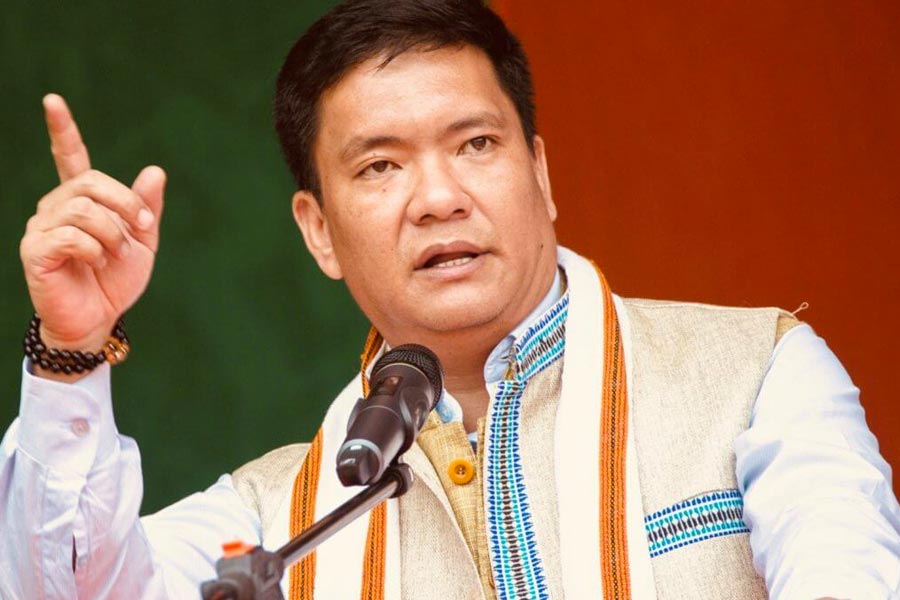It is a long, but fairly unimpeded, ride from Dibrugarh in Assam to Roing in the Lower Dibang Valley district of Arunachal Pradesh, the state going to simultaneous assembly and Lok Sabha polls today. The inter-state checkgate at Santipur is the first tryst with reality: infrastructure, or the lack of it, and the near-total absence of navigable routes in the state’s eastern sector that borders Myanmar.
Contrast this with the election statistics: the chief minister, Pema Khandu, has total assets worth Rs 277.89 crore, an increase of Rs 145.8 crore between 2019 and 2024. In the 60-member assembly, 10 Bharatiya Janata Party candidates were elected unopposed last month. Of the 143 candidates, 115 or 81% of the contestants are crorepatis, according to the Association for Democratic Reforms.
Yet, the state is replete with unemployment, lack of roads and drinking water, poor literacy (four candidates are illiterate crorepatis) and negligible representation of women. Toko Sheetal of the Gana Suraksha Party is the only woman among 14 contestants for the two Lok Sabha seats, Arunachal East and Arunachal West. Only eight women filed nominations for the 50 assembly seats left.
It is thus doubly reassuring to speak to Bethem Marai, a feisty 26-year-old who is the first post-graduate from her Kammaan Mishmi community. She will be voting for the first time in her life today. “During the previous polls, although I was a voter, I happened to be in college located in Coimbatore,” she explains. Bethem hails from the Lohit district but is located at Roing as a sustainability educator with the NGO, Amyaa, helmed by the social worker, R.K. Paul Chawang. Bethem says there is hardly any campaigning in her constituency, even for issues that concern the youth. “Everyone wants a government job. Here the post of a peon in a government office is valued more than being an entrepreneur. So many youths leave the state in search of jobs or to explore their potential and return home frustrated after a while. The state government should offer more opportunities.”
According to Paul, Amyaa has tied up with Prayasam of Calcutta and the American Consulate to explore avenues for the youth to earn a livelihood by honing skills in photography, videography, digital media and tapping natural resources. “At the workshop organised by Prayasam, the youth were encouraged to tell their stories to the world through documentaries and reels,” he added. The project will cover eight districts — Lower Dibang, Dibang Valley, Namsai, Changlang, Lohit, East Siang, Lower Subansiri and Papum Pare. Bethem said Prayasam was the first to show them “how the youth, generally reluctant to try other options, could be instrumental in generating jobs, especially the marginalised sections.”
Another member, Pratap Chakma, spoke of the deprivation of his community. “The Chakma population in Arunachal Pradesh is 70,000, but only about 7,000 of us have voting rights. To get something as basic as a birth certificate, we have to travel for an hour to the circle office and are then made to return multiple times.” An enthusiastic participant of the Community Youth Hub initiated by these NGOs, he will be voting for the second time in his life today.
Not surprisingly, infrastructure and border area development are key poll issues, evident even to Saptarshi Ray and Prasanta Roy of Prayasam, who visited Roing to train these youths. “There is so much tourism potential. But unless basic necessities like roads and water supply are addressed, how will Arunachal attract visitors?” they wondered. In a state of marginalised communities and overwhelming poverty, being a crorepati should be a stigma. Isn’t it time the newly-elected leaders ensured welfare schemes instead of shamelessly lining their pockets?










